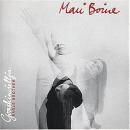Livččen riidalit hearráiguin
livččen muitalit duođa
cealkit daidda buohkaide
maid leat baháid dahkan
gielain, lágain ja bahpariin
buriid eatnamiid váldán
jeahkáliid čiehkan ovssiiguin
rási hohkadan čáziin.
Livččen riidalit hearráiguin
livččen cábmit ja bealkit
váldit ruoktot buriid buot
maid mii leat ferten addit
jos in livčče nu unni
jos mii eat livčče nu moadde
jos sii vel ipmirdivčče
sámi iežas giela
livččen muitalit duođa
cealkit daidda buohkaide
maid leat baháid dahkan
gielain, lágain ja bahpariin
buriid eatnamiid váldán
jeahkáliid čiehkan ovssiiguin
rási hohkadan čáziin.
Livččen riidalit hearráiguin
livččen cábmit ja bealkit
váldit ruoktot buriid buot
maid mii leat ferten addit
jos in livčče nu unni
jos mii eat livčče nu moadde
jos sii vel ipmirdivčče
sámi iežas giela
envoyé par Juha Rämö - 20/3/2018 - 13:44
Langue: suédois
Traduzione svedese / Swedish translation / Traduction suédoise / Svensk översättning: Åsa Blind
JAG SKULLE BRÅKA MED HERRARNA
Jag skulle bråka med herrarna
jag skulle berätta sanningen
säga till dem alla
det onda de gjort
med språket, med lagen och med papperet
tagit bra betesland
gömt undan renlaven med kvistar
dränkt gräset med vatten.
Jag skulle bråka med herrarna
jag skulle slå och skälla ut
ta tillbaka allt de goda
som vi tvingats att ge
om inte jag vore så liten
om inte vi vore så få
och om de skulle förstå
samens eget språk.
Jag skulle bråka med herrarna
jag skulle berätta sanningen
säga till dem alla
det onda de gjort
med språket, med lagen och med papperet
tagit bra betesland
gömt undan renlaven med kvistar
dränkt gräset med vatten.
Jag skulle bråka med herrarna
jag skulle slå och skälla ut
ta tillbaka allt de goda
som vi tvingats att ge
om inte jag vore så liten
om inte vi vore så få
och om de skulle förstå
samens eget språk.
envoyé par Juha Rämö - 20/3/2018 - 13:46
Langue: suédois
Traduzione svedese 2 / Swedish translation 2 / Traduction suédoise 2 / Svensk översättning 2: Juha Rämö
JAG SKULLE HA STRIDIT MED HERRARNA
Jag skulle ha stridit med herrarna
berättat sanningen
sagt till dom alla
förtäljt om ondskan dom gjort
till språket, lagen och pappren
den goda marken dom tagit
laven dom täckt undan med ris
gräset dom dränkt under vatten.
Jag skulle ha stridit med herrarna
slagit och bannat
tagit tillbaka allt det goda
man tvingat oss att ge upp
om jag inte vore så liten
om vi inte vore så få
om dom ens skulle förstå
vårt säregna samiska språk.
Jag skulle ha stridit med herrarna
berättat sanningen
sagt till dom alla
förtäljt om ondskan dom gjort
till språket, lagen och pappren
den goda marken dom tagit
laven dom täckt undan med ris
gräset dom dränkt under vatten.
Jag skulle ha stridit med herrarna
slagit och bannat
tagit tillbaka allt det goda
man tvingat oss att ge upp
om jag inte vore så liten
om vi inte vore så få
om dom ens skulle förstå
vårt säregna samiska språk.
envoyé par Juha Rämö - 20/3/2018 - 13:47
Langue: finnois
Traduzione finlandese / Finnish translation / Traduction finnoise / Suomennos: Eva Buchholz
OLISIN RIIDELLYT HERROJEN KANSSA
Olisin riidellyt herrojen kanssa
olisin kertonut totuuden
sanonut niille kaikille
mitä ovat pahoja tehneet
kielelle, laille ja papereille.
Hyvät maat ovat ottaneet
jäkälän peittäneet risujen alle
ruohon hukuttaneet veteen.
Olisin riidellyt herrojen kanssa
olisin lyönyt ja haukkunut
ottanut takaisin kaikki hyvät
mitkä meiltä on viety
jos en olisi niin pieni
jos meitä ei olisi niin vähän
jos he vielä ymmärtäisivät
saamen omanlaista kieltä.
Olisin riidellyt herrojen kanssa
olisin kertonut totuuden
sanonut niille kaikille
mitä ovat pahoja tehneet
kielelle, laille ja papereille.
Hyvät maat ovat ottaneet
jäkälän peittäneet risujen alle
ruohon hukuttaneet veteen.
Olisin riidellyt herrojen kanssa
olisin lyönyt ja haukkunut
ottanut takaisin kaikki hyvät
mitkä meiltä on viety
jos en olisi niin pieni
jos meitä ei olisi niin vähän
jos he vielä ymmärtäisivät
saamen omanlaista kieltä.
envoyé par Juha Rämö - 20/3/2018 - 13:49
Langue: allemand
Traduzione tedesca / German translation / Traduction allemande / Deutsche Übersetzung: Peer Buchholz
ICH HÄTTE MIT DEN HERREN GESTRITTEN
Ich hätte mit den Herren gestritten
hätte ihnen die Wahrheit gesagt
hätte ihnen allen gesagt
was sie Schlechtes angetan haben
der Sprache, dem Gesetz und mit Papieren.
Das gute Land haben sie genommen
die Flechte mit Reisern bedeckt
das Gras im Wasser ertränkt.
Ich hätte mit den Herren gestritten
hätte geschlagen und geschimpft
hätte mir all das Gute wiedergenommen
was wir aufgeben mußten
wenn ich nicht so klein wäre
wenn wir nicht so wenige wären
wenn sie wenigstens verstehen würden
unsere eigenartige samische Sprache.
Ich hätte mit den Herren gestritten
hätte ihnen die Wahrheit gesagt
hätte ihnen allen gesagt
was sie Schlechtes angetan haben
der Sprache, dem Gesetz und mit Papieren.
Das gute Land haben sie genommen
die Flechte mit Reisern bedeckt
das Gras im Wasser ertränkt.
Ich hätte mit den Herren gestritten
hätte geschlagen und geschimpft
hätte mir all das Gute wiedergenommen
was wir aufgeben mußten
wenn ich nicht so klein wäre
wenn wir nicht so wenige wären
wenn sie wenigstens verstehen würden
unsere eigenartige samische Sprache.
envoyé par Juha Rämö - 20/3/2018 - 13:50
Langue: anglais
Traduzione inglese / English translation / Traduction anglaise: Juha Rämö
I WOULD HAVE ARGUED WITH THE AUTHORITIES
I would have argued with the authorities
told them the truth
made them all understand
the evils they've done
to the language, the law and the papers
the good land they've taken
the liken they've covered with slash
the grass they've drowned under water.
I would have argued with the authorities
hit and denounced them
taken back all the good
they made us give up
if I wasn't this small
if we weren't this few
if only they would understand
this unique Sami language of ours.
I would have argued with the authorities
told them the truth
made them all understand
the evils they've done
to the language, the law and the papers
the good land they've taken
the liken they've covered with slash
the grass they've drowned under water.
I would have argued with the authorities
hit and denounced them
taken back all the good
they made us give up
if I wasn't this small
if we weren't this few
if only they would understand
this unique Sami language of ours.
envoyé par Juha Rämö - 20/3/2018 - 13:51
Langue: italien
Traduzione italiana di Riccardo Venturi
(Dalle versioni in svedese, tedesco e inglese)
21 marzo 2018 08:27
(Dalle versioni in svedese, tedesco e inglese)
21 marzo 2018 08:27
AVREI DOVUTO LOTTARE CON LE AUTORITA'
Avrei dovuto lottare con le autorità,
dire loro la verità,
far loro capire a tutte
i mali che hanno commesso
alla lingua e alla legge con le loro scartoffie.
La buona terra di pascolo che si sono prese,
il lichene ricoperto di risaie,
l'erba sommersa dall'acqua.
Avrei dovuto lottare con le autorità,
le avrei dovute colpire e denunciare,
riprendermi tutti quei beni
a cui ci hanno fatto rinunciare
se io non fossi così piccolo,
se noi non fossimo così pochi,
se solo capissero
questa nostra e unica lingua Sami.
Avrei dovuto lottare con le autorità,
dire loro la verità,
far loro capire a tutte
i mali che hanno commesso
alla lingua e alla legge con le loro scartoffie.
La buona terra di pascolo che si sono prese,
il lichene ricoperto di risaie,
l'erba sommersa dall'acqua.
Avrei dovuto lottare con le autorità,
le avrei dovute colpire e denunciare,
riprendermi tutti quei beni
a cui ci hanno fatto rinunciare
se io non fossi così piccolo,
se noi non fossimo così pochi,
se solo capissero
questa nostra e unica lingua Sami.
Thanks to Juha Rämö (JR) for all the invaluable contributions (original lyrics, translations, videos and audio links) he has made and is still making to our website. It should be remarked that Juha's contributions are often in languages we normally don't have easy access to (first of all, his native Finnish).
CCG/AWS Staff - 21/3/2018 - 09:31
@Juha: it seems that the biography refers to Åsa Larsson Blind, for sure not the same person since she was born in 1980. I found an available picture of the "original" Åsa Blind in 1976 from the LP and included it in discogs and in our author page, but I think the notes from the bio should be reviewed.
Lorenzo - 20/6/2021 - 17:30
×
![]()








Musica / Music / Musique / Musihkka / Musik / Musikka: Åsa Blind
Testo / Lyrics / Paroles / Sánit / Text / Sanat: Mikkel Utsi
From the 1976 album De čábba niegut runiidit by Åsa Blind, Jaakko Gauriloff and Nils-Aslak Valkeapää
Sincere thanks to Åsa Blind for her help with the Sami lyrics and for her Swedish translation of them / Ett varmt tack till Åsa Blind för hennes hjälp med den samiska sångtexten och för hennes svenska översättning av den.
Heartiest congratulations to the Antiwarsongs staff for 15 years of great work. [JR]
Un ringraziamento sincero a Åsa Blind per il suo aiuto con il testo Sami e per la sua traduzione svedese. Congratulazioni di cuore allo staff di Canzoni Contro la Guerra per il 15 anni di grande lavoro.[JR]